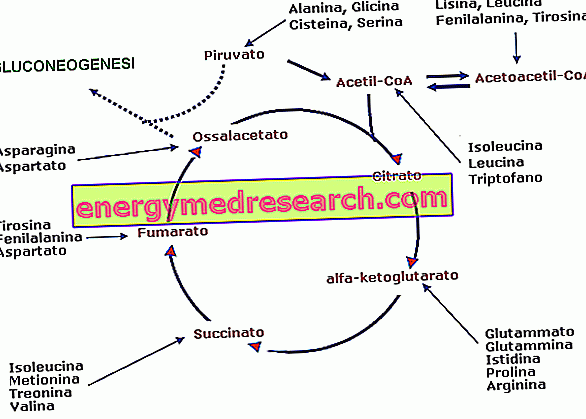
What is Diacomit?
Diacomit is a medicine containing the active substance stiripentol. It is available in capsules or in sachets containing (250 and 500 mg). The sachets contain a powder used to obtain an oral suspension (a liquid containing solid particles).
What is Diacomit used for?
Diacomit is an anti-epileptic drug. It is indicated for children with a very rare form of epilepsy called "severe myoclonic epilepsy of childhood" (EMSI), also known as Dravet's syndrome. This type of epilepsy affects young children. Diacomit is indicated as an adjunctive therapy to clobazam and valproate (other antiepileptic drugs) in the treatment of tonic-clonic seizures (the most serious crises, in which there is a loss of consciousness) that cannot be adequately controlled with clobazam and valproate.
Because the number of patients with EMSI is low, the disease is considered "rare" and Diacomit was designated an "orphan medicine" (a medicine used in rare diseases) on 5 December 2001.
The medicine can only be obtained with a prescription.
How is Diacomit used?
Diacomit therapy should only be administered under the strict supervision of a doctor experienced in the diagnosis and management of epilepsy in infants and children (a pediatrician or a pediatric neurologist). The normal dose is 50 mg / kg of body weight, divided into two or three doses during the day. Treatment usually begins with a reduced dose of the drug, which is gradually increased to the recommended dose over three days. After starting therapy with Diacomit it may be necessary to decrease the dose of clobazam. As a rule, the dose of valproate does not need to be adjusted.
The main studies conducted on Diacomit were carried out on children over three years old. The decision regarding the use of Diacomit in children under the age of three must be made on an individual basis, as appropriate: that is, the drug can be given to younger children only if the diagnosis of EMSI has been confirmed.
Diacomit should be taken along with food, but not with milk or dairy products, carbonated drinks, fruit juices or caffeinated foods or beverages or theophylline (a substance found, for example, in black and green tea).
How does Diacomit work?
The mode of action of the active ingredient of Diacomit, stiripentol, as an anti-epileptic drug is not yet fully known. It is possible that it acts by accentuating the activity of other antiepileptic drugs, reducing their speed of metabolization by the liver. It is also possible to increase the levels of a "neurotransmitter" called gamma-aminobutyric acid (GABA) in the spaces between nerve cells in the brain. Neurotransmitters are substances in the body that transmit signals from one nerve cell to another.
How has Diacomit been studied?
The effects of Diacomit were first tested in experimental models before being studied in humans.
The two main studies conducted on Diacomit were carried out on 65 children and adolescents aged between three and 18 years. The studies compared the effectiveness of Diacomit, in capsules or sachets, with that of a placebo (a dummy treatment) in these patients as an adjunctive treatment to ongoing therapies with clobazam and valproate. The main measure of effectiveness was the number of patients "reactive" to treatment. One patient was defined as "reactive" if the number of seizures in the second month of treatment had decreased by at least 50% compared to that of the month preceding the start of therapy.
What benefit has Diacomit shown during the studies?
The number of patients reactive with Diacomit was higher than that of patients treated with placebo. In the first study, 71% of patients taking Diacomit were reactive to treatment (15 out of 21), compared with 5% in the placebo group (1 out of 20). Similar results were also shown in the second study with 67% of patients reactive with Diacomit (8 of 12), compared to 9% of the placebo group (1 of 9). However, it is not clear whether this effect is due to Diacomit or to the increased levels of other antiepileptic drugs.
What is the risk associated with Diacomit?
The most common side effects seen with Diacomit (over 1 in 10 patients) are anorexia (loss of appetite), weight loss, insomnia, drowsiness, ataxia (inability to coordinate muscle movements), hypotonia (muscle weakness) and dystonia (disorders muscle). For the full list of all side effects reported with Diacomit, see the Package Leaflet.
Diacomit should not be used in people who may be hypersensitive (allergic) to stiripentol or any of the other ingredients. It must also not be used in patients who have a history of psychosis (a serious mental state that involves an altered sense of reality) and with delusional episodes (mental state characterized by confusion, excitement, restlessness and hallucinations). Particular caution should be used when Diacomit is given at the same time as other medicines. For the full list of these medicines, see the package leaflet.
Why has Diacomit been approved?
The Committee for Medicinal Products for Human Use (CHMP) concluded that Diacomit has been shown to be effective in the treatment of EMSI, although the number of studies is poor and their duration is shorter than that expected by the committee. The Committee decided that Diacomit's benefits are greater than its risks for use in combination with clobazam and valproate in the adjunctive therapy of refractory generalized tonic-clonic seizures in patients with severe myoclonic epilepsy of childhood, EMSI (or Dravet's syndrome ) in which seizures are not adequately controlled with clobazam and valproate. The committee therefore recommended that Diacomit be given marketing authorization.
Diacomit has obtained "conditional approval". This means that more data on the drug is expected. Every year the European Medicines Agency (EMEA) will review any new information that will become available and, if necessary, update this summary.
What information is still awaited for Diacomit?
The company that makes Diacomit will conduct a study that will compare Diacomit with clobazam, as an adjunctive therapy in the ongoing treatment of patients whose symptoms are not adequately controlled with clobazam and valproate.
What measures are being taken to ensure the safe use of Diacomit?
The company that makes Diacomit will monitor the effects of the drug on the stomach and intestines and on the rate of growth, particularly in the case of concomitant use of valproate. He will also look at the effects of the combined use of Diacomit with other drugs on the risk of long-term problems affecting the brain and nervous system.
Other information on Diacomit:
On 4 January 2007, the European Commission granted Biocodex a marketing authorization for Diacomit, valid throughout the European Union.
For a summary of the opinion of the Committee for Orphan Medicinal Products in relation to Diacomit click here.
The full EPAR for Diacomit can be found here.
Last update of this summary: 12-2008.



